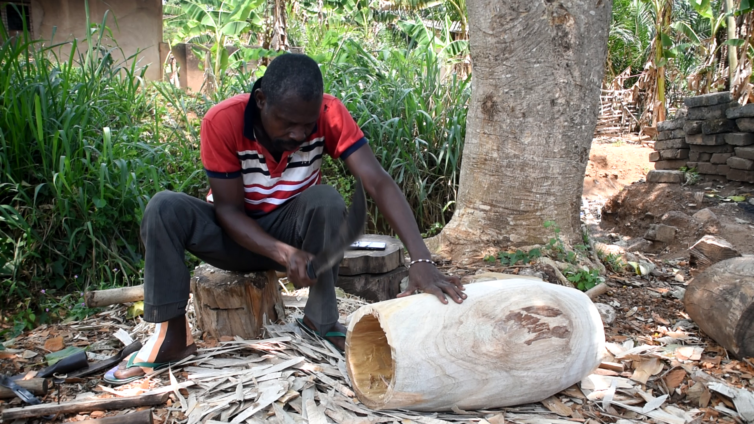Drums are a membranophone family of musical instruments that play a vital role in the Ghanaian setting.
Made in different sizes and shapes, these drums are put together to produce various indigenous music, ranging from 'Borborbor', 'Agbadza', 'Kpalongo', and 'Adowa' among others.
In this Ghana month feature, JoyNews’ Fred Quame Asare takes us on a journey through how these drums are produced to perfection.
Benjamin is one of the numerous drum cavers in the South Dayi District town of Peki, in the Volta Region.
He narrates that the drum-making process starts with finding a suitable tree in the forest.
Tsruboa is the most preferred in the locality here because of its durability.
The trunk is chopped into preferred sizes and lengths, to begin the process.
A caver needs a set of special tools to produce perfect drum pieces.
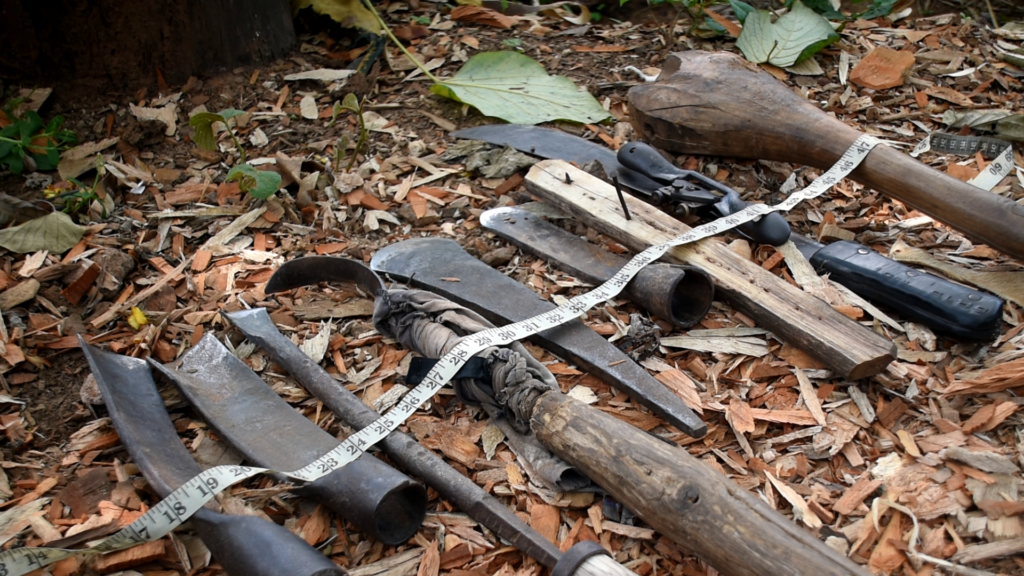
“I learned how to cave drums by observing carvers in the enclave during my childhood. A lot of people have trained under me and now have their production units", Benjamin narrates.
Today, Benjamin is caving a drum mostly assembled with other drums in performing 'Borborbor', and choral songs among others.
He first takes off the bark at both ends of the wood and then removes some portions of the hearth wood and growth rings, creating a hole in the middle of the wood.
The phloem, cambium, and bark in the middle are removed with a machete, carving the wood into a desired shape.
The rest of the hearth wood and growth rings and portions of the sapwood in the middle of the wood are removed. He continues until he gets the right measurement for his drum.
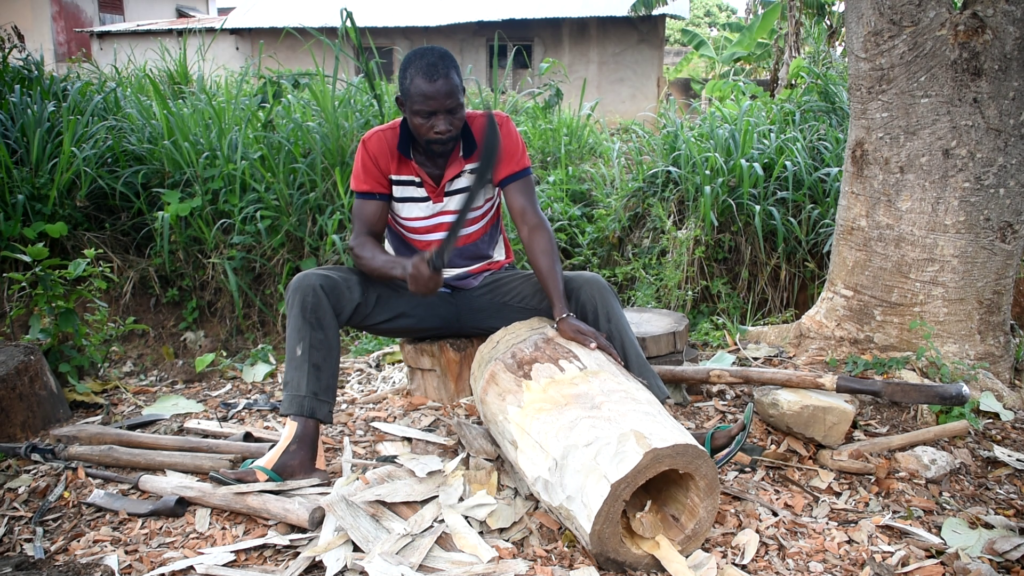
“When you are learning the skill, we guide you through the process little by little. Sometimes we allow creating a hole in the middle of the wood. We will do this until you become perfect at carving the drum", he chipped in while carving the drum.
He marks the drum and drills holes for the pegs which are used to control the sound produced by the drum.
A gage is used to draw lines around the drum, after which the service of a chisel is employed to design the drum. He adds dye to make the design visible. This project the beauty of the drum and makes it attractive.
Antelope, goat, sheep, and cow skins are stretched over the drum and tightened through with wooden pegs intertwined to the skin with a rope to form the drumhead.
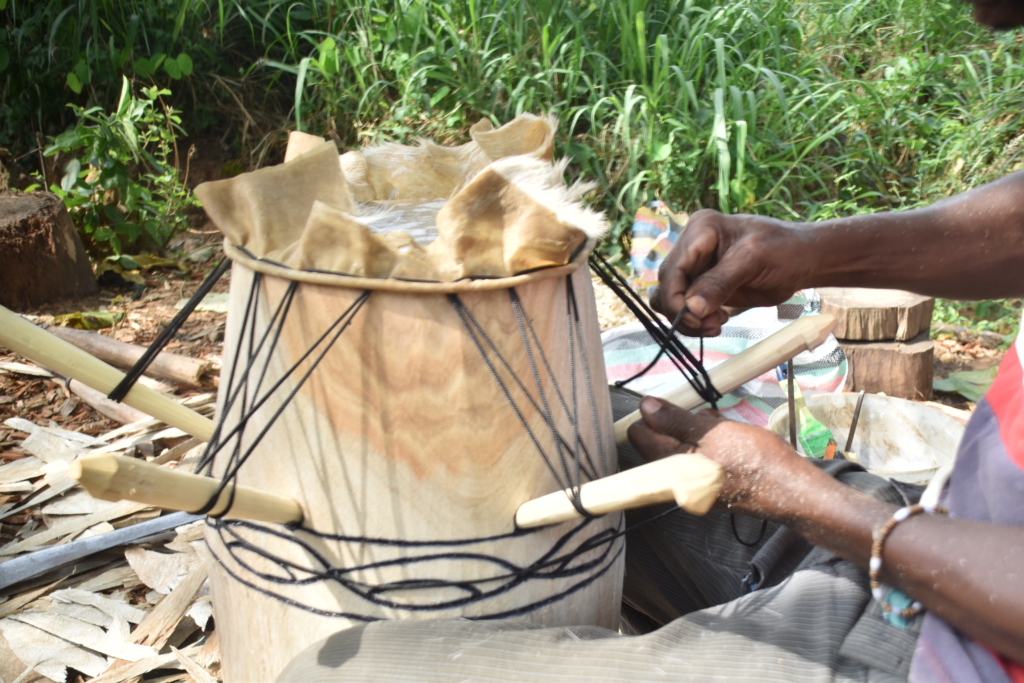
While working on the drum, Benjamin advised that the carver must be careful with the tools because they are very sharp, "and they hurt badly. You can get hurt at any stage of the process”.
After fixing the drumhead, the drum is painted and dried under the sun, after which it is displayed at a selling point along the Peki Asikuma-road.
The bigger the drum, the high the production cost and selling price.
Cavers in the Peki enclave identified a lack of capital as a major setback to their business.
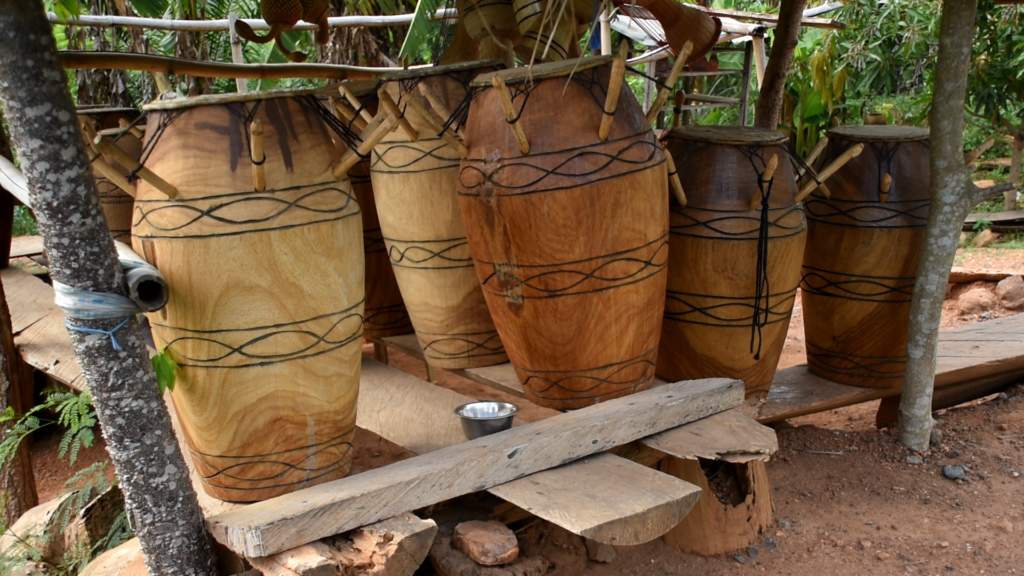
“They are buying the drums but we don't have money to produce enough for people to buy instantly when they visit our stands. When we have enough capital, we will produce all the sizes and types and display them so they can buy for us to get money and look after the family.
For Agbadza, we sell the five drum set at ¢5,000 and the four set at ¢4,500," said Akakpo Mensah, one of the carvers.
Latest Stories
-
No-Fee-Stress policy: Education Minister launches portal for registration by level-100 students
57 seconds -
Crude oil production declined for the 5th consecutive year in 2024 – PIAC report
6 minutes -
Health Minister to donate three months of his salary to Ghana Medical Trust Fund
9 minutes -
Heavy rainfall, stormy winds and system upgrades cause of recent power outages – ECG
12 minutes -
NIA expands premium services to 5 regions, relocates Accra centre
14 minutes -
GBA condemns ongoing galamsey activities, demands swift judicial action and gov’t intervention
17 minutes -
Cedi records massive gain against dollar today; one dollar equals GH¢15.40
19 minutes -
Bawku: GBA calls for calm and backs Asantehene’s mediation process
23 minutes -
Reflecting on the past, resetting for the future: A call to action
25 minutes -
GBA raises alarm over lack of parliamentary representation in Ablekuma North
26 minutes -
Highlife musician Kwabena Kwabena vies for UPSA SRC presidency
29 minutes -
Akufo-Addo should take the blame for his administration’s failure – Kwadwo Mpiani
29 minutes -
GBA calls on Ag. Chief Justice to withdraw court assignment directive
35 minutes -
National chair should be the face of NPP’s ‘thank you tour’, not a potential candidate – Kwadwo Mpiani
49 minutes -
Banking on Integrity: Analysing Ghana’s 2024 fraud trends and the legal imperatives for the future
53 minutes

